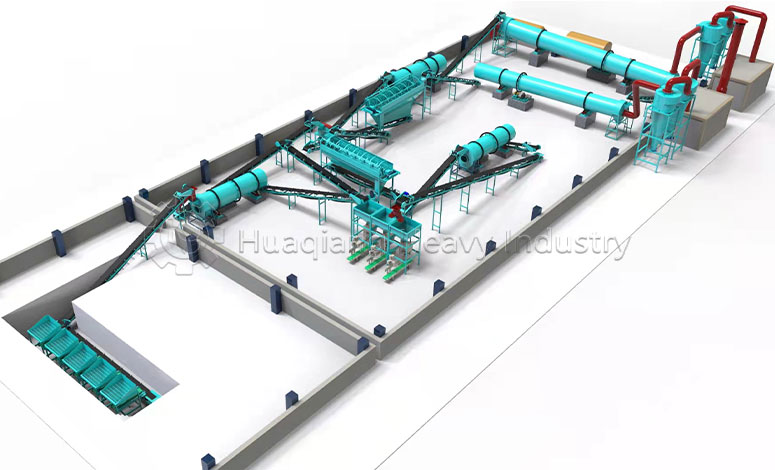In today’s pursuit of sustainable development, organic fertilizer production lines are becoming a major highlight in the agricultural and environmental protection sectors. But have you ever considered how seemingly useless agricultural waste and household garbage can be transformed into “black gold” through a series of sophisticated equipment, improving soil quality and increasing crop yields?
A complete organic fertilizer production line goes far beyond simple composting. It typically includes fertilizer equipment such as fertilizer crushing, a fertilizer mixer, a compost turning machine, and a fertilizer granulator. These devices work together to transform raw materials such as livestock and poultry manure, straw, and food waste into highly effective organic fertilizer. The fermentation process is particularly critical. Precisely controlling temperature, humidity, and ventilation not only effectively kills pathogens and weed seeds, but also maximizes the retention of organic matter and nutrients, ensuring the quality and effectiveness of the final product.
At the same time, modern production lines can flexibly integrate other fertilizer production equipment, such as bio-inoculation devices, trace element precision blending systems, and liquid fertilizer production lines, to meet the specific needs of different crop characteristics and soil conditions. This modular design not only greatly improves the adaptability and flexibility of the production line, but also significantly enhances the market competitiveness of the final product, bringing greater economic benefits to producers.
From an environmental perspective, the organic fertilizer production line effectively solves the problem of disposing of agricultural waste and organic garbage, significantly reducing their environmental pollution burden. It also enables resource recycling and reduces the carbon footprint of agricultural production.



